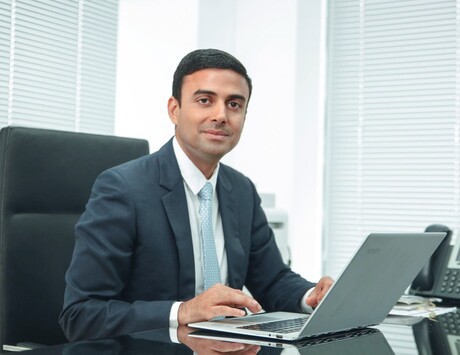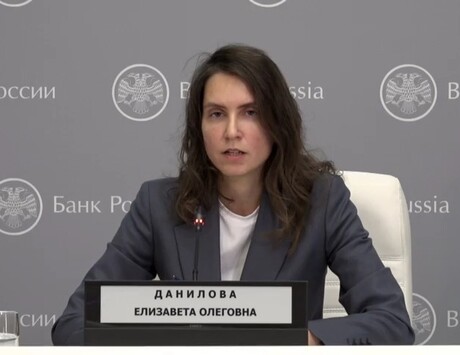I have no doubt that the Kremlin wants to make an ally, not an enemy, of the UK
Evgenyl Lebedev
Outrage and horror were in no short supply when, last week, it was announced that the Chilcot Report into the Iraq War will finally be published next summer. I think it highly unlikely that this will provide the cathartic moment that many opponents of the war desire.
In fact, the Chilcot Report’s most useful function may be altogether different, in reminding the people of Britain of a time when this country was a strong and active player in the Middle East.
It is becoming genuinely difficult to argue that Britain does indeed have a foreign policy today — at least in relation to the biggest crisis in the world today, which is the dissolution of Syria.
Early in his tenure, William Hague’s approach as Foreign Secretary coincided with a shift in focus to trade, as if his department had become a branch of the Treasury.
This was gradually reversed, but our National Security Council and Philip Hammond, Hague’s successor, have not injected vim, confidence, or anything approaching a coherent, long-term strategy into our response to the biggest challenge we face.
At a time when rising powers such as China and India know exactly what they’re doing — note the former’s investment in Africa and dropping of its one-child policy — this doesn’t make Britain look too smart. Partly because of our good fortune in not being part of the euro, we have been a bystander as the continent’s economy has spluttered from crisis to crisis.
Henry Kissinger never actually said “Who do I call if I want to call Europe?” — but if an American Secretary of State were to do so today, the answer would be Angela Merkel, not our Prime Minister.
Nor does our indecision over whether to remain in the EU help us secure influence in Brussels, or other capitals across the continent. On the most pressing issue in our time — Syria — to say that Britain is playing second fiddle would be putting it mildly.
What is worse, we appear reluctant to work with those who are most active in the region, and with whom we share strategic interests. I’m thinking here of Russia.
Speaking to The Times last week, Alexander Yakovenko, the Russian ambassador to London, who has written in these pages, was gratifyingly frank about the deterioration in relations with Britain, which have “bit by bit fallen into decline”.
“Practically all political contacts were abruptly broken off at Britain’s initiative. Political dialogue has gone at the top level, between the leaders,” he said. “At the ministerial level there is also stagnation... Forums for the discussion of trade and economic co-operation where we discussed mutual interests are frozen, science ties are effectively cut off; the only sphere we have left is culture.”
This is an appalling state of affairs. Given Russia’s standing on the world stage, it is also a deeply unhealthy one. If we can make pragmatism the basis of our relations with, say, China, then why not Russia too?
Of course, I have an interest here. I was born in Moscow, lived there until I was eight, have dual citizenship and love both my homeland and my adopted home equally, albeit in different ways.
I don’t want these two great nations, whose peoples have so much to offer each other, to grow apart through hostility and recrimination. I have no doubt, based on conversations with senior figures in Moscow, that the Kremlin wants to make an ally rather than an enemy of Britain. And I also believe that it is in Britain’s best interest not only to work constructively with Moscow, but to be an active, engaged player on the world stage. Not least because where Britain withdraws, others are stepping into the breach.
Over the past few days, former (and perhaps future) French president Nicolas Sarkozy has been in Moscow, praising Vladimir Putin, calling for closer ties with Russia and arguing that she should play a central role in managing the Syrian quagmire.
“Isolating Russia makes no sense,” he said. “We need to choose rapprochement and dialogue.” France, he implied, could help to bring Russia in from the cold.
Shouldn’t Britain be that very thing, the trusted intermediator, that Russia seeks and France offers? Put this question to diplomats and they will say that Russia deserves to remain in the international doghouse for a while yet, on account of its behaviour in Crimea.
That seems naive to me. Contrary to almost all Western media coverage about the matter, the conflict in Ukraine is beginning to fizzle out. That is not to say the military presence is gone, or the tensions have disappeared, or that there will be no more reports about daily skirmishes. It is simply the case that — for now at least — the Kremlin’s attention is elsewhere: specifically, in Syria.
And who can blame them? There may be up to 7,000 Russian nationals who are in Syria as a result of being radicalised. Moscow, not a multicultural city in the way that London is, and run by an administration that is much more militarily decisive because it doesn’t put all big decisions to Parliament, is clear: these terrorists must be killed, before they return to Russia to wreak havoc.
On that point, Britain and Russia should be of like mind. We, too, know that there are many British citizens who have been radicalised and, for unfathomable reasons, decided to flee to this anarchic region and fight against all the things readers of this newspaper take for granted: democracy, peace, civilisation.
We have common cause with the Russians, a common enemy. The biggest threat to humanity today is cancerous, Islamist ideology that is growing fast right across the world — one that claims, with what truth we don’t yet know, to be behind the weekend’s tragic plane crash in Egypt’s Sinai desert.
Not for nothing did the head of our security services say last week that the terror threat in Britain is the highest it has been in his 32-year career.
Destroying this cancer, or plague, at source could hardly be more worthwhile or urgent; and yet, rather than work with the Russians to do this, we seem intent on cutting ties instead.
Britain should not be leaving it to the French to mediate between Russia and the West. For all the greatness of this island nation, for all its hard and soft power, there is a laxity in our approach to the Syrian crisis.



